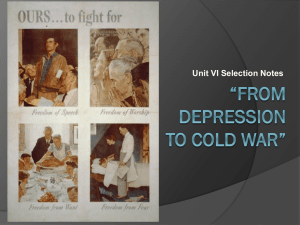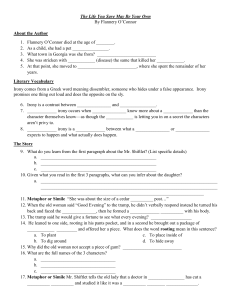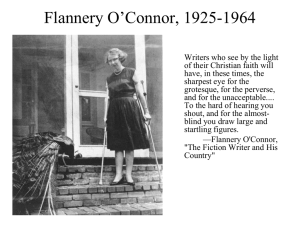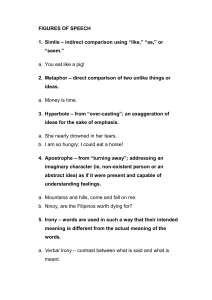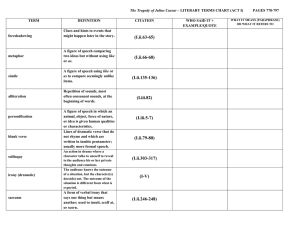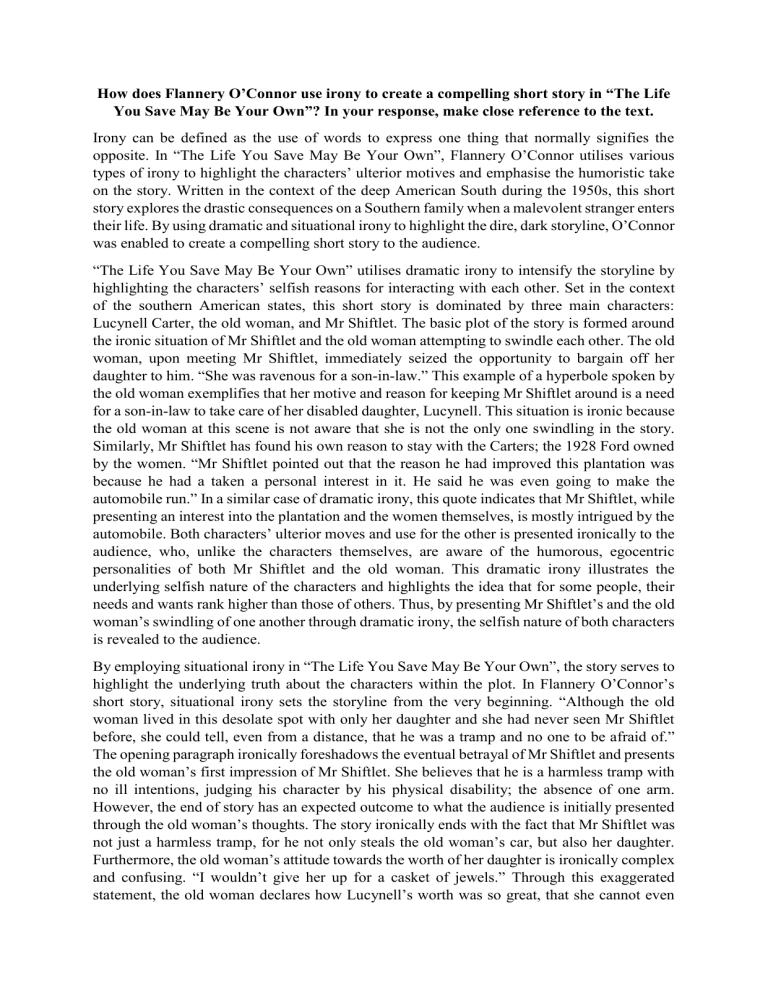
How does Flannery O’Connor use irony to create a compelling short story in “The Life You Save May Be Your Own”? In your response, make close reference to the text. Irony can be defined as the use of words to express one thing that normally signifies the opposite. In “The Life You Save May Be Your Own”, Flannery O’Connor utilises various types of irony to highlight the characters’ ulterior motives and emphasise the humoristic take on the story. Written in the context of the deep American South during the 1950s, this short story explores the drastic consequences on a Southern family when a malevolent stranger enters their life. By using dramatic and situational irony to highlight the dire, dark storyline, O’Connor was enabled to create a compelling short story to the audience. “The Life You Save May Be Your Own” utilises dramatic irony to intensify the storyline by highlighting the characters’ selfish reasons for interacting with each other. Set in the context of the southern American states, this short story is dominated by three main characters: Lucynell Carter, the old woman, and Mr Shiftlet. The basic plot of the story is formed around the ironic situation of Mr Shiftlet and the old woman attempting to swindle each other. The old woman, upon meeting Mr Shiftlet, immediately seized the opportunity to bargain off her daughter to him. “She was ravenous for a son-in-law.” This example of a hyperbole spoken by the old woman exemplifies that her motive and reason for keeping Mr Shiftlet around is a need for a son-in-law to take care of her disabled daughter, Lucynell. This situation is ironic because the old woman at this scene is not aware that she is not the only one swindling in the story. Similarly, Mr Shiftlet has found his own reason to stay with the Carters; the 1928 Ford owned by the women. “Mr Shiftlet pointed out that the reason he had improved this plantation was because he had a taken a personal interest in it. He said he was even going to make the automobile run.” In a similar case of dramatic irony, this quote indicates that Mr Shiftlet, while presenting an interest into the plantation and the women themselves, is mostly intrigued by the automobile. Both characters’ ulterior moves and use for the other is presented ironically to the audience, who, unlike the characters themselves, are aware of the humorous, egocentric personalities of both Mr Shiftlet and the old woman. This dramatic irony illustrates the underlying selfish nature of the characters and highlights the idea that for some people, their needs and wants rank higher than those of others. Thus, by presenting Mr Shiftlet’s and the old woman’s swindling of one another through dramatic irony, the selfish nature of both characters is revealed to the audience. By employing situational irony in “The Life You Save May Be Your Own”, the story serves to highlight the underlying truth about the characters within the plot. In Flannery O’Connor’s short story, situational irony sets the storyline from the very beginning. “Although the old woman lived in this desolate spot with only her daughter and she had never seen Mr Shiftlet before, she could tell, even from a distance, that he was a tramp and no one to be afraid of.” The opening paragraph ironically foreshadows the eventual betrayal of Mr Shiftlet and presents the old woman’s first impression of Mr Shiftlet. She believes that he is a harmless tramp with no ill intentions, judging his character by his physical disability; the absence of one arm. However, the end of story has an expected outcome to what the audience is initially presented through the old woman’s thoughts. The story ironically ends with the fact that Mr Shiftlet was not just a harmless tramp, for he not only steals the old woman’s car, but also her daughter. Furthermore, the old woman’s attitude towards the worth of her daughter is ironically complex and confusing. “I wouldn’t give her up for a casket of jewels.” Through this exaggerated statement, the old woman declares how Lucynell’s worth was so great, that she cannot even put a price on it. However, the story’s further progression demonstrates the contradictory claim of the old woman when she sells Lucynell to Mr Shiftlet. ‘“Seventeen-fifty,” …” That’s all I got…” This quote from the old woman is vastly different from her previous declaration that Lucynell was “priceless”, as she now states that her daughter is worth only $17.50. This is ironic since jewels are notorious for being incredibly expensive, and the amount of $17.50 does not nearly equate to the same price as jewels. Thus, in utilising situational irony, the short story shows the true, hidden colours of both Mr Shiftlet and the old woman. Therefore, in using periods different types of irony, O’Connor was enabled to create a compelling plot within ‘The Life You Save May Be Your Own’.

